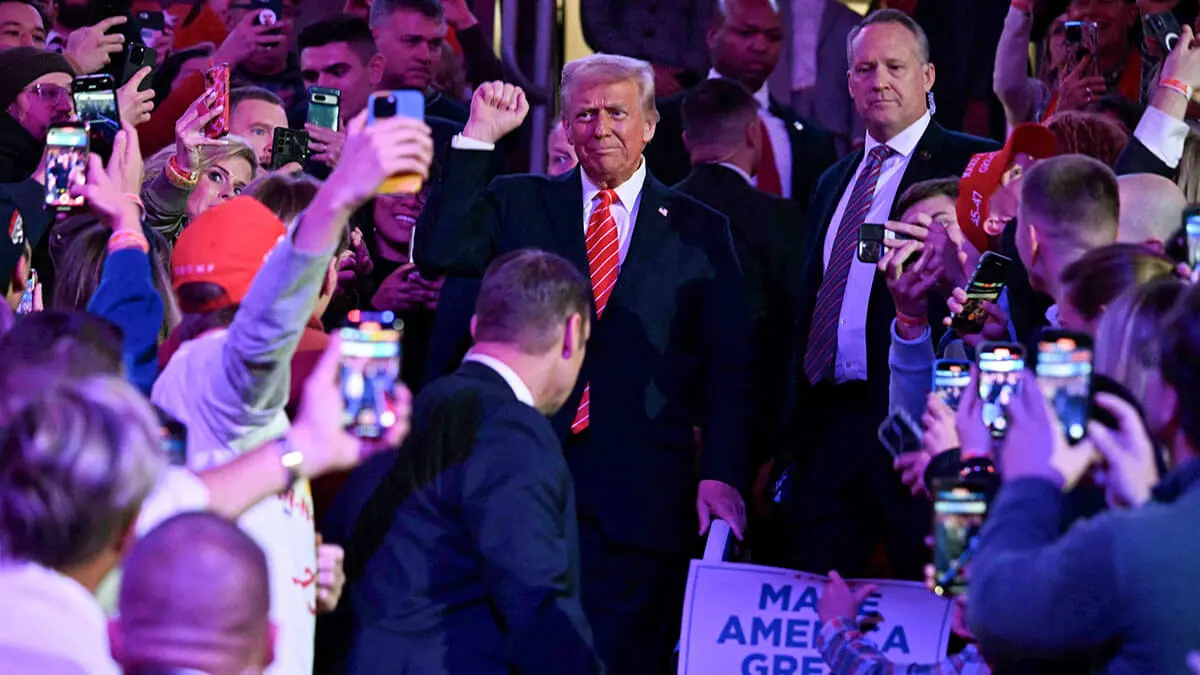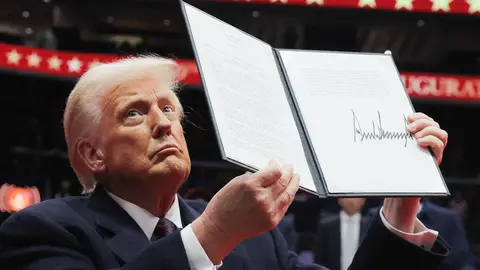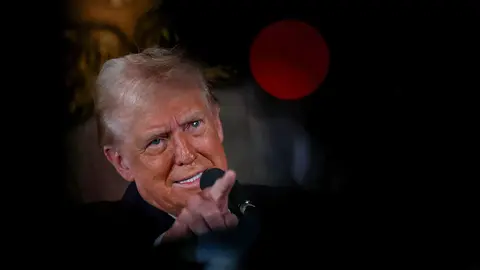Europe: adapt or die to Trump's demands

The change of status from allies to partners is something that the new US president intends, and the Europeans themselves know that this Western alliance will come to an end and the American Union will become a necessary partner.
What will become of NATO? The Transatlantic Alliance, which was founded on 4 April 1949 and currently has 32 member countries (30 European and two American with the United States and Canada), will spend approximately 1.1 trillion dollars in 2023.
Last year, a total of 18 allied countries met their commitment to spend 2% of their GDP on defence. The US accounted for 53 % of the allies' combined GDP.
As a candidate, Trump has already hinted that he will require NATO member states to spend 5 % of their GDP on defence, which requires a fiscal squeeze that is not always within reach. For the first time, Germany managed to exceed 2 % of GDP in defence spending.
Trump, while campaigning in South Carolina, declared that as president he would encourage Russia to ‘do whatever it wants’ to countries that do not meet their defence spending. His comments provoked concern across Europe, alarming European NATO members,
What are Europeans doing about it? Last year, French President Emmanuel Macron proposed developing a military strategic concept for Europeans if Trump's intention to leave NATO persists.
Macron suggested that the new concept could include the German-initiated European air and missile defence shield known as the European Sky Shield, as well as enhanced European capabilities in the deep strike and nuclear deterrence arsenal.
The French president stressed the need to implement the Strategic Compass objectives, in particular to put in place new rapid deployment capabilities and adopt anti-hybrid measures. And to give more money to develop Europe's arms industry.
If the United States leaves NATO, its character as an ally would change to that of a business partner. And, Europeans need to buy American arms and military equipment, a point that Trump is keen to boost further.
According to the BBC, in 2023, US arms sales abroad reached a record 238 billion dollars; the US government directly negotiated 81 billion dollars in sales, an increase of 56 % over 2022.
Italy, too, continues to acquire new-generation US military equipment: a few months ago, the US State Department approved the sale of an unspecified number of EA-37B aircraft to bolster its military forces.
And it is in President Trump's own interest that US corporations in his buoyant military industry continue to make millions in profits.
Any shift in the US president's stance on NATO will not prevent him from authorising arms sales to European countries, which are also the main buyers of the modern F-35 Lightning II aircraft manufactured by Lockheed Martin Corporation. These aircraft are being purchased by Germany, Greece and recently Romania acquired 32 aircraft making it the third NATO member to operate F-35s.
The other interests energy and satellites
Over and above Trump's disaffection with his transatlantic allies and the fact that the EU is ready to respond to the US if it imposes higher tariffs, there are interests not only in military arms sales, but also in sectors such as energy and satellite technology.
Without much of the oil supplied by Russia (due to sanctions and vetoes imposed for its invasion of Ukraine) it has been the US that has become a major energy partner for the EU.
It supplies the EU with 18-25 % of its oil. Most exports to Europe are of WTI Midland crude oil that goes directly to European refineries. It has also become the bloc's second largest gas supplier, with a share of almost 20 %, behind Norway, which accounts for almost 31 % of the EU's gas imports.
Last year, the EU began seeking more cheap oil from various African countries - a point that has annoyed Trump; as a candidate he went so far as to threaten tariffs on various European products if the EU does not buy more US oil and gas.
Then there is the satellite industry in which Trump has a special interest along with his employee, billionaire Elon Musk, who runs the Department of Government Efficiency alone, following the resignation of tycoon Vivek Ramaswamy, to co-head it.
Starlink, one of Musk's companies, provides internet services through a huge network of satellites that also provide information relevant to espionage, security, military intelligence and war fighting.
Starlink is believed to have put 4 thousand satellites in space since 2018 and in the Trump era they could have exponential growth and Europe is a prime target of interest for Trump and Musk.
Precisely, the EU has its own satellite programme called Infrastructure for Resilience, Interconnection and Security by Satellite (IRIS2) that seeks to compete with Starlink and above all provide Europe with technological independence in the field of space and connectivity.
‘The European Commission has signed a contract with the SpaceRISE consortium, composed of companies such as Airbus, Thales Alenia Space and SES, to lead the development of the satellite constellation. This agreement includes an initial investment of 2.4 billion euros for the manufacture, launch and operation of the IRIS2 satellites,’ according to the European Commission.
The EU sees this programme as a cornerstone for its technological ambitions as well as for protecting its security and defence space without having to rely on suppliers outside the continent.
However, Musk is already taking his first steps to build his satellite network in European space, taking advantage of his new position as a man close to President Trump.
He intends for Italy's satellite contracts to be signed with his company Starlink and to become its supplier instead of IRIS2. The agreement is being discussed through Musk's other company, SpaceX, with the government of Italian Prime Minister Giorgia Meloni.
The deal is worth 1.5 billion euros. Prime Minister Meloni insists that Italy faces a dilemma over how to protect its sensitive communications, as there are currently no alternative systems to Starlink and the EU's IRIS2 will not be operational until the end of 2030.
The European Commission has already protested because it fears for European security. It is not excluded that Trump will also press the EU for Starlink agreements in exchange for remaining an ally, he will push them from all sides.



